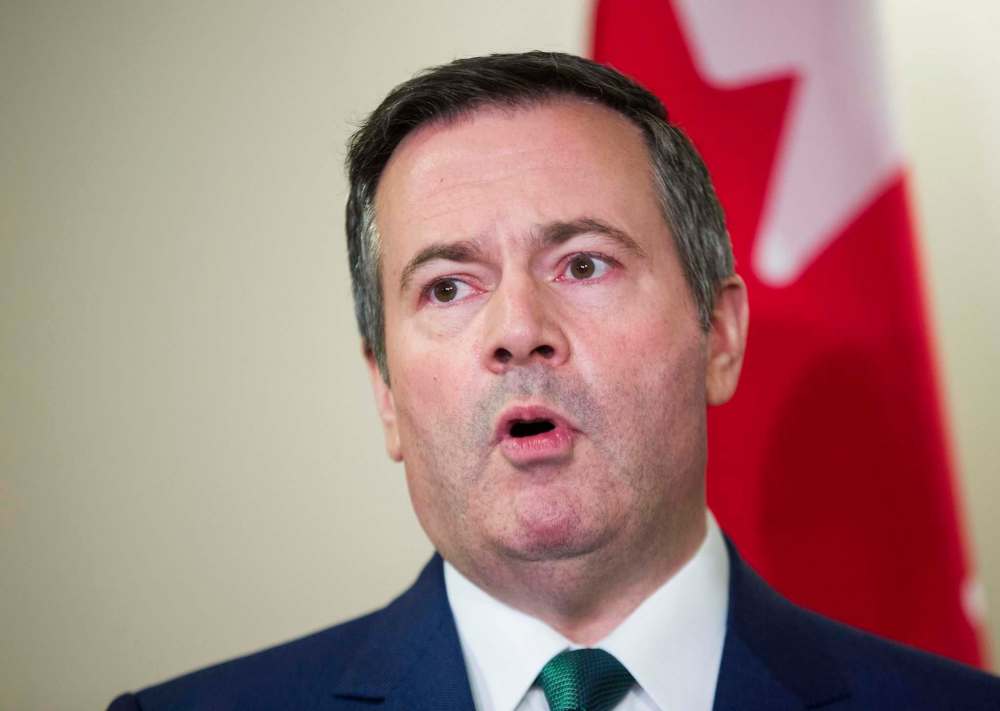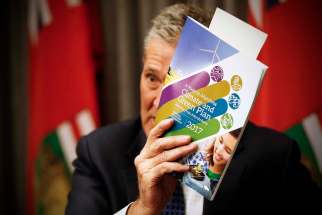Buffalo Declaration a divisive misstep
Read this article for free:
or
Already have an account? Log in here »
To continue reading, please subscribe:
Monthly Digital Subscription
$0 for the first 4 weeks*
- Enjoy unlimited reading on winnipegfreepress.com
- Read the E-Edition, our digital replica newspaper
- Access News Break, our award-winning app
- Play interactive puzzles
*No charge for 4 weeks then price increases to the regular rate of $19.00 plus GST every four weeks. Offer available to new and qualified returning subscribers only. Cancel any time.
Monthly Digital Subscription
$4.75/week*
- Enjoy unlimited reading on winnipegfreepress.com
- Read the E-Edition, our digital replica newspaper
- Access News Break, our award-winning app
- Play interactive puzzles
*Billed as $19 plus GST every four weeks. Cancel any time.
To continue reading, please subscribe:
Add Free Press access to your Brandon Sun subscription for only an additional
$1 for the first 4 weeks*
*Your next subscription payment will increase by $1.00 and you will be charged $16.99 plus GST for four weeks. After four weeks, your payment will increase to $23.99 plus GST every four weeks.
Read unlimited articles for free today:
or
Already have an account? Log in here »
Hey there, time traveller!
This article was published 02/03/2020 (2109 days ago), so information in it may no longer be current.
Four Alberta Conservative MPs have probably done their party more harm than good by issuing a 13-page rant against some amorphous entity described as “the power elites of the Laurentian consensus,” and threatening to separate Alberta from Canada if they don’t get the reforms they want.
The document, grandly titled the “Buffalo Declaration,” was issued Feb. 20 by Michelle Rempel Garner (Calgary Nose Hill), Blake Richards (Banff-Airdrie), Glen Motz (Medicine Hat-Cardston-Warner) and Arnold Viersen (Peace River-Westlock). Though it is not Conservative party policy, it is a forceful statement of Alberta rage against Canada, likely to be remembered long after more careful expressions of Conservative thought have been forgotten.
The four MPs demand abolition of the federal government’s equalization program. This idea wins applause these days in Calgary, but it will be hard to explain in Manitoba, Quebec, New Brunswick, Nova Scotia and Prince Edward Island, where the provincial governments count on equalization for a substantial share of their revenue.
They demand an increase in the number of Alberta seats in the Senate. The Constitution gives the four western provinces 24 seats and currently six of the appointees are from Alberta. As with the United States Senate, there is no connection between a province’s population and its number of Senate seats.
They demand a parliamentary denunciation of devastation they believe was caused by the National Energy Program, an oil-pricing regime that applied for five years and was wrapped up 35 years ago.
Their underlying theme is that the Laurentian elites have always treated Alberta as a colony, never as an equal partner in Canada. Because most Canadians do not live in Alberta, the national political parties govern for the benefit of a non-Alberta majority, and that’s just not fair.
The authors ransack Canadian history for evidence the Canadian political structure is rigged against Alberta or against the larger Buffalo region that was formed into the provinces of Alberta and Saskatchewan in 1905. The region has supplied four of Canada’s 17 prime ministers since 1905 — R.B. Bennett, John Diefenbaker, Joe Clark and Stephen Harper — but the authors deftly write around that point.
The document seems hastily drafted. The authors complain there are not enough Alberta reporters in the parliamentary press gallery. They want someone to bring more Albertans into the gallery as a means of providing more Alberta news in national media. But when editors want Alberta stories, they don’t look for them in Ottawa.

The authors complain, moreover, that the CBC reports too much about United States politics and not enough about Alberta’s economic pain, and this proves once again that Canada is rigged against Alberta. A moment’s thought could have persuaded them to look for stronger arguments than this.
The Conservative party, searching for a leader to replace Andrew Scheer, is uncertain in its direction and its policy at the moment. The loudest voice in the room lately has been Alberta Premier Jason Kenney, who is waging political war against the federal carbon tax and against anyone who gets in the way of oil production and pipelines.
In these circumstances, Canadians may easily conclude the Buffalo Declaration authors and the Conservative party are vehicles for Alberta anger, lacking a wider understanding of the necessity of national accommodation. This might help re-elect Alberta Conservatives to Parliament, but it won’t help the party return to government.







